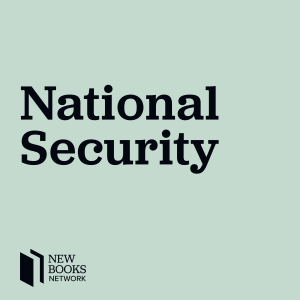
New Books in National Security
Science:Social Sciences

Erez Manela, "The Wilsonian Moment: Self-determination and the International Origins of Anticolonial Nationalism" (Oxford UP, 2019)
 2020-12-24
2020-12-24
Download
Right click and do "save link as"
This is a Special Series on Third World Nationalism.
In the wake of a rise in nationalism around the world, and its general condemnation by liberals and the left, in addition to the rise of China and Russia, we have put together this series on Third World Nationalism to nuance the present discourse on nationalism, note its centrality to anti-imperial, anti-colonial politics around the world, the reconfiguration of global power, and its inextricability from mainstream politics in Africa, Asia, Latin America and the Caribbean.
Today my guest is Erez Manela, author of The Wilsonian Moment: Self-Determination and the International Origins of Anticolonial Nationalism (Oxford UP, 2009).
During the Paris Peace Conference of 1919, while key decisions were debated by the victorious Allied powers, a multitude of smaller nations and colonies held their breath, waiting to see how their fates would be decided. President Woodrow Wilson, in his Fourteen Points, had called for "a free, open-minded, and absolutely impartial adjustment of all colonial claims," giving equal weight would be given to the opinions of the colonized peoples and the colonial powers. Among those nations now paying close attention to Wilson's words and actions were the budding nationalist leaders of four disparate non-Western societies--Egypt, India, China, and Korea. That spring, Wilson's words would help ignite political upheavals in all four of these countries.
This book is the first to place the 1919 Revolution in Egypt, the Rowlatt Satyagraha in India, the May Fourth movement in China, and the March First uprising in Korea in the context of a broader "Wilsonian moment" that challenged the existing international order. Using primary source material from America, Europe, and Asia, historian Erez Manela tells the story of how emerging nationalist movements appropriated Wilsonian language and adapted it to their own local culture and politics as they launched into action on the international stage. The rapid disintegration of the Wilsonian promise left a legacy of disillusionment and facilitated the spread of revisionist ideologies and movements in these societies; future leaders of Third World liberation movements--Mao Zedong, Ho Chi Minh, and Jawaharlal Nehru, among others--were profoundly shaped by their experiences at the time.
The importance of the Paris Peace Conference and Wilson's influence on international affairs far from the battlefields of Europe cannot be underestimated. Now, for the first time, we can clearly see just how the events played out at Versailles sparked a wave of nationalism that is still resonating globally today.
Kirk Meighoo is a TV and podcast host, former university lecturer, author and former Senator in Trinidad and Tobago. He hosts his own podcast, Independent Thought & Freedom, where he interviews some of the most interesting people from around the world who are shaking up politics, economics, society and ideas. You can find it in the iTunes Store or any of your favorite podcast providers. You can also subscribe to his YouTube channel. If you are an academic who wants to get heard nationally, please check out his free training at becomeapublicintellectual.com.
Learn more about your ad choices. Visit megaphone.fm/adchoices
view more
More Episodes
012345678910111213141516171819
Create your
podcast in
minutes
- Full-featured podcast site
- Unlimited storage and bandwidth
- Comprehensive podcast stats
- Distribute to Apple Podcasts, Spotify, and more
- Make money with your podcast
It is Free
- Privacy Policy
- Cookie Policy
- Terms of Use
- Consent Preferences
- Copyright © 2015-2024 Podbean.com





